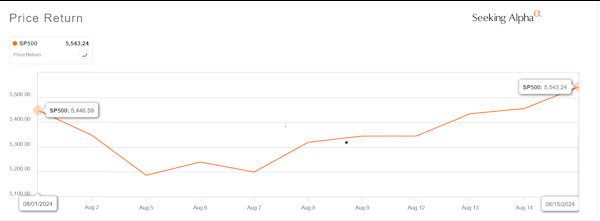Seismic changes are about to hit the real estate world. The National Association of Realtors is dropping its standard commissions to agents as part ...
 | Read in Browser |
 |
| | Top News  Getty Images Seismic changes are about to hit the real estate world. The National Association of Realtors is dropping its standard commissions to agents as part of a deal to end antitrust lawsuits, potentially giving American home sellers more negotiating power over the fee structure when putting their houses on the market. The changes will go into effect on Saturday after a court ruling found that requirements to post commissions reduced competition and kept rates artificially high.
How things work? In the U.S., each real estate deal typically includes two agents - one for the buyer and one for the seller. Until now, sellers usually forked over a hefty 6% commission, which was then split between the two agents involved with the transaction. Larger firms that have more sway over the market have generally held steady to their rates, and while smaller boutique firms would sometimes be willing to negotiate, it would still help steer agents away from the discount commissions that were seen in the Multiple Listing Service (MLS).
Any indication of agents' compensation will now be eliminated from the MLS, including historical data, though it can be communicated by ads, phone, or in person. Secondly, while sellers can still incentivize a sale by sticking to past practices, they can also say that they want buyers to be on the hook. That'll mean more paperwork, especially for buyers and their agents, who will have to sign several forms even before they go see or show a house (to clarify how the commissions will be paid).
Sector impacts: While the changes could save sellers money, they could force buyers to come up with more to pay for the fees, or incentivize agents to focus on higher-priced homes. Most agree that it can be quite a while before overall costs formally drop, though sellers may be willing to part with their homes for less if they are not paying as much for commissions. Others see the new rules as helping to re-energize the housing market, especially as mortgage rates begin to come down, with the potential for new business models or many part-time realtors leaving the industry. | | Consumer Major stock market averages ended higher Thursday after jobless claims unexpectedly fell and retail sales bounced back. Index heavyweight Walmart ( WMT) also helped counter recession worries with a series of upbeat comments and raising its outlook. "We have not seen any additional fraying of consumer health in our business," said CFO John David Rainey, echoing a company viewpoint held for the last few quarters and helping lift other retail stocks. "The soft landing is back on the table,' Investing Group Leader Leo Nelissen told Seeking Alpha. ( 70 comments) | | | | | Energy Wind turbines generated more electricity in the U.S. than coal-fired power plants in March and April, according to the Energy Information Administration, marking a new milestone in the country's energy transition. Innovation has led to a lowering of costs to build renewable energy infrastructure, as well as tax credits under the Inflation Reduction Act and states mandating utilities need to support growth in clean energy. Fossil fuels still accounted for the majority of electricity generation in the U.S. during the first four months of 2024. See the full breakdown here. (3 comments) | | Economy Atlanta Fed President Raphael Bostic, who is a voting FOMC member, is open to an interest rate cut next month, saying the central bank can't "afford to be late" in starting monetary easing. "Now that inflation is coming into range, we have to look at the other side of the mandate, and there, we've seen the unemployment rate rise considerably off of its lows," he declared. It's notable, as just a few days ago, Bostic said "a little more" data was needed before he could back rate cuts. Elsewhere, St. Louis President Alberto Musalem also announced that the time was approaching for rate cuts. ( 3 comments) | | Today's Markets In Asia, Japan +3.6%. Hong Kong +1.9%. China +0.1%. India +1.7%.
In Europe, at midday, London -0.4%. Paris +0.3%. Frankfurt +0.7%.
Futures at 7:00, Dow flat. S&P -0.1%. Nasdaq flat. Crude -2.4% to $75.13. Gold +0.4% to $2,502.50. Bitcoin +0.1% to $58,437.
Ten-year Treasury Yield -4 bps to 3.87%. Today's Economic Calendar | | | | | Seeking Alpha's Wall Street Breakfast Podcast Seeking Alpha's Wall Street Breakfast podcast brings you all the news you need to know for your market day. Released by 8:00 AM ET each morning, it is a quick listen that you can put on as you get ready to start your working day. | | | | |
112373630927 https://email-hs.seekingalpha.com/hs/preferences-center/en/page?data=W2nVjwf3Y2w_DW3C7fLY3_tgJGW4mbl2B2MRW4ZW41G31y45NRGgW49Pf-J3_CV2sW2TlrgM34xV45W3NN96m3XyW3rW2PQ0rm1_qj1_W1Stzb83b51krW3XT_yG3LYtRNW2xYM2g2szKXjW3P301V1Zcg14W3gqsqH2WffsqW3jcVx62KpkMKW2p1M6_3P2_SZW3yRX132YxqWFW20WyZv3bffnyW3_Vkw743lHrfW4hsXp_32pCYVW2zTLDW3R5dtzW38gLF249BkT1W2s-pPx1Y-gdsW4rqpWn4klvqRW45kgtJ2Cv-lgW3VNNzk1VzpshW2Ptw_61QxJm-W30cqNn1-_qQfW3QSxtw2Kq9MTW2CtNhD1LByt1W3D-jx-4czLsDW4cNF9S41KtW-W3JX4Jl3c-37CW3R4rPR3_Rr32W34fvp538n6zNW4czhpN3jnF9KW2t0Tm63c_MVKW45ylZG34Dqb4W2xMkRP2HqW7dW2Wrfn-385CSXW3jn6W22Rj98yW47C0253K5RmcW2sPm8f32nlK6W1V9Z123_KgZZW2KY4NQ4pB0GTW3QV-Nq2qLjtcW3Vz-WN2F-7Tpf3F9_2h04














